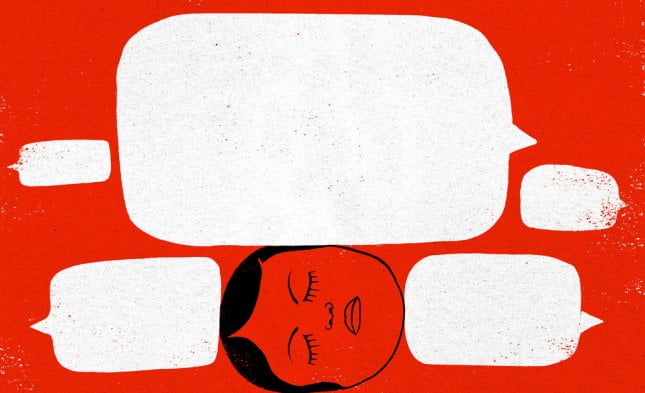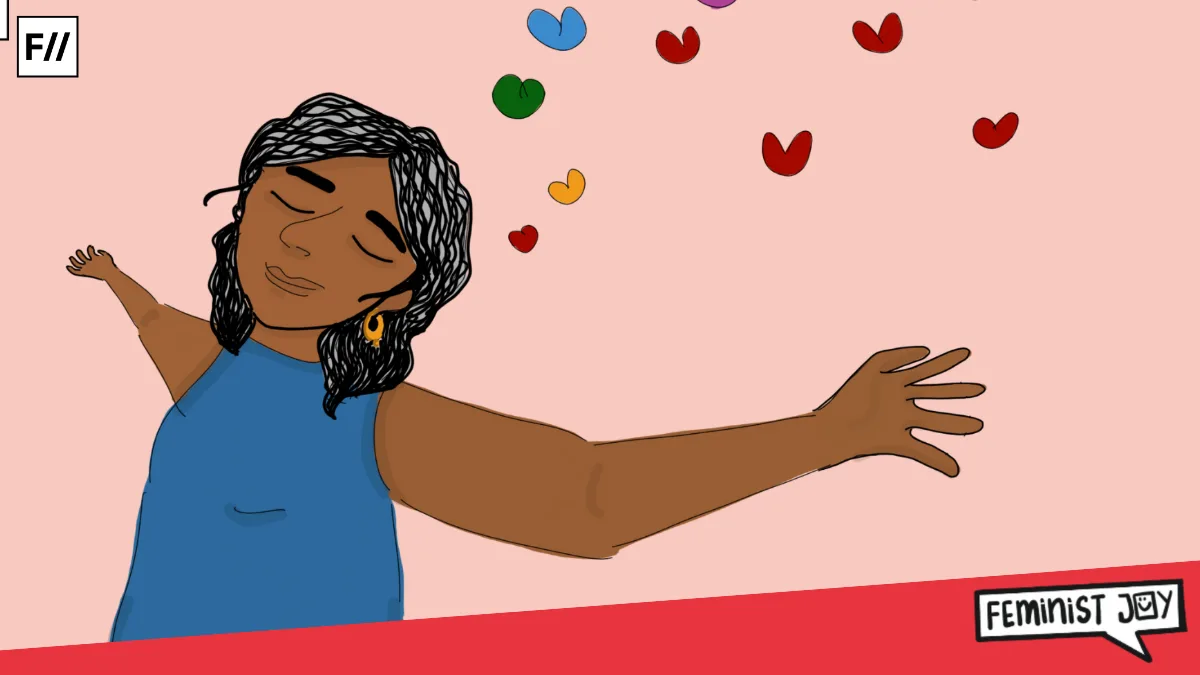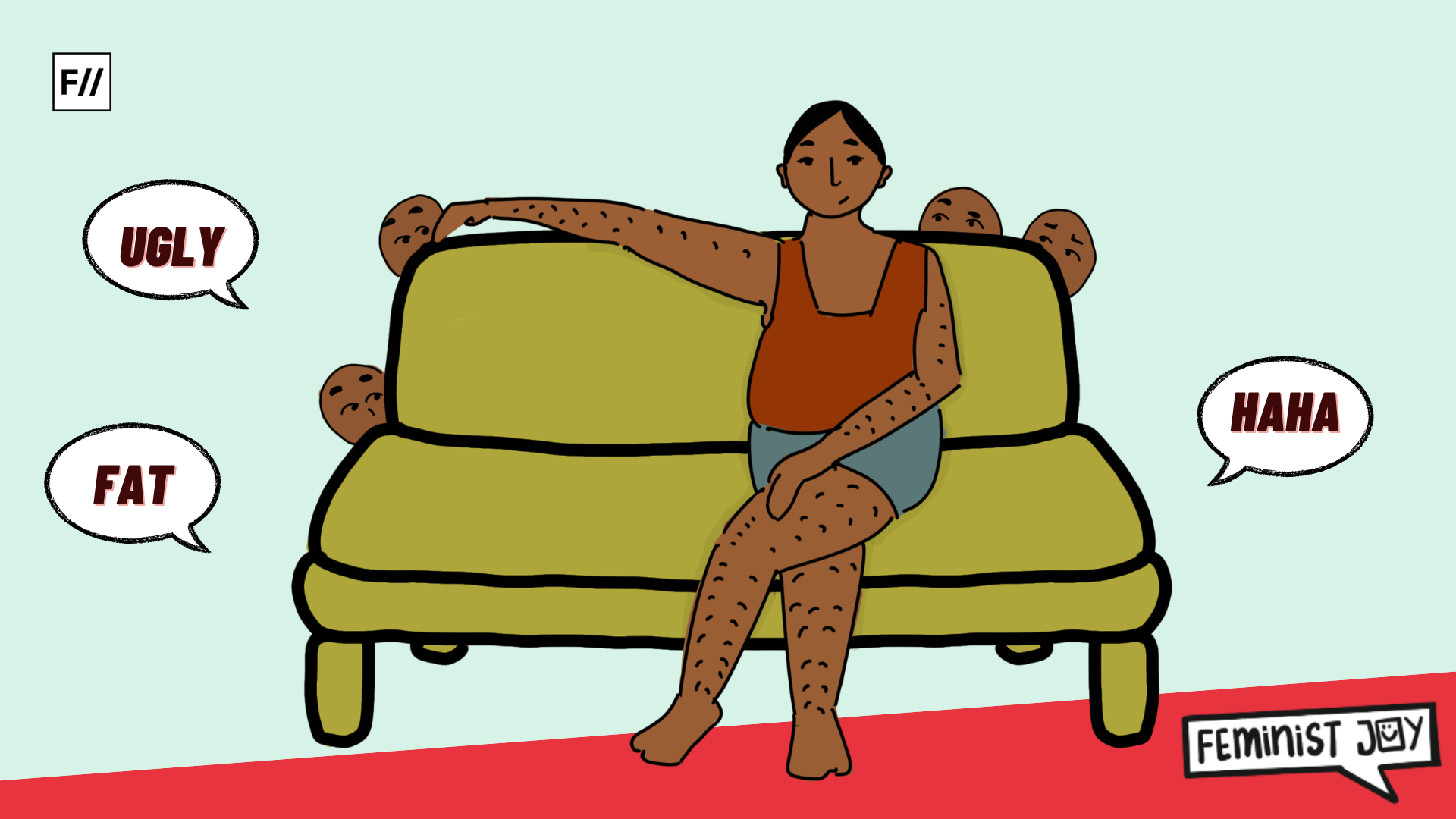Editor’s Note: FII’s #MoodOfTheMonth for January, 2022 is Our Evolving Relationship With Feminism. We invite submissions on the many changing aspects of the feminist discourse, throughout the month. If you’d like to contribute, kindly email your articles to sukanya@feminisminindia.com
When I look back into my life to understand how I became a feminist, I can clearly find three acts whereby I reckoned my own position; which invariably helped me establish, maneuver and strengthen my relationship with feminism.
I bloomed late into the feminist paradigm. This, I call the first act. In my 20s, discussing feminism with my British flatmates made me averse to their notions of equality and privilege, without acknowledging the structural inequities and subservience that was part of the culture where I grew up.
Whenever my parents quarreled, my father would not hesitate to remind my mother that it was his name on the door of our house in India, my mother could walk out if she was unhappy. The films I watched fed into this mysterious non-feminist stance that I held dear to my heart. Feminism – the bra-burning type – that my friends advocated for, did not suit my purpose.
Professionally, I worked for women’s empowerment and looked at their needs, capacities and abilities to recover from repeated disaster events and yet, I grappled with the ideas and debates that were shoved under my throat in the name of feminism. I now realise, being able to not label myself a feminist was also stemming from the privileged life I had, growing up in urban India.

Despite pursuing my doctoral studies in understanding women’s relationship with water after disasters, I used to refrain from positioning myself as a feminist. Influenced by the work of Bangladeshi researcher, Farhana Sultana I clearly recall in my pre-viva preparation meeting with my doctoral supervisory team when I confessed I wish I was open about my stance as a feminist because I would have been so much more aware, observant and critical about how women’s relationship with water was framed within patriarchal structures of dominance, safety and benevolence.
I began to investigate how inter and intra-household relationships, agency and resources were distributed based on gender and how decisions around what and when women ate, grew in their fields, what nutritious foods they gave their children, what they wore during menstruation, when and with whom they could visit markets or health centres, were all influenced by patriarchy. It was not just about whether, when and whom women chose to marry and have children. All along, women are given a script to follow within this system and any non-conformity is looked down upon, ridiculed and ostracised
Although I passed my viva voce without being questioned about this particular aspect of my research, it became a personal ambition to become more critical, reflexive and analytical about my research, practice and teaching. When I came across this term intersectional feminism, I came to realise why I had always hesitated to call myself a feminist: most of my understanding of what feminism stood for was Western, White female centric arguments of occupying space and written from the perspective of the victor, understanding and acknowledging their role in subjugating the oppressed.
Intersectional feminism, for me, was a mould that could hold space for those who were oppressed too. That offered me a respite – I could now investigate my personal, practical and field experiences with a new lens. I could begin to fathom how women across different spaces, tribes and castes in regions where I worked and lived were influenced, and sometimes used their agency to take actions to improve their lives despite living in the margins.
Also read: ‘Even Fleabag Was A Bad Feminist’: A Personal Note On Being A ‘Fat, Bad Feminist’

Second act: My relationship with feminism pivoted when I made the choice to become a mother. Coming across people’s invasive comments, judgements and assumptions about the choices I made about my own body opened up a plethora of questions in my mind.
First and foremost, I re-evaluated the books I read – including more diverse voices, proactively choosing women and non-binary authors. I started exploring these critical questions through the lens of Asian-Indian feminist scholars and writers like Krishna Sobti, Amrita Pritam, Nivedita Menon, Leela Gandhi and Meena Kandasamy. Alongside, my work also evolved within the fulcrum of thought provided by feminist economists such as Bina Desai and Naila Kabeer.
I began to investigate how inter and intra-household relationships, agency and resources were distributed based on gender and how decisions around what and when women ate, grew in their fields, what nutritious foods they gave their children, what they wore during menstruation, when and with whom they could visit markets or health centres, were all influenced by patriarchy. It was not just about whether, when and whom women chose to marry and have children. All along, women are given a script to follow within this system and any non-conformity is looked down upon, ridiculed and ostracised.
This is not only emotionally taxing, and erodes my ability to function as a productive professional on non-teaching days but it is also turning into an act of immense joy, creativity and engagement with young minds. Thus, classroom becomes a fertile ground where both the teacher and the student are actively learning and reflecting on how ideas learnt in classroom impact our experiences outside of it, thereby learning to integrate theory and practice: ways of knowing with ways of being
In the third act, in my new role as a teacher and academic, my feminism was now performed within the confines of a neoliberal university’s classroom. Drawing inspiration from bell hooks’, “Teaching to transgress” and teaching virtually during the pandemic, I began to associate learning within these online classrooms as an act of survival, of having each other’s backs and leaning in when we needed support or just a safe space to express what we are feeling.
This was not easy. It continues to be a crisis that is fuelled by the drivel of economic and financial ambitions of an extractive education system. As weeks rolled into months, and later years on virtual university, this act of being myself in classroom, sometimes vulnerable, most times open, reflective and welcoming of students’ experiences, reflections and emotions became the fulcrum of my relationship with feminism.

In doing so, we were collectively resisting the dominant and normative discourses on education. In this act, hopefully not the final act, I continue to challenge students’ assumptions of class participation, leadership being open and critical at the same time and most importantly bring their true selves, experiences and perceptions into the classroom, virtually for the time being.
This is not only emotionally taxing, and erodes my ability to function as a productive professional on non-teaching days but it is also turning into an act of immense joy, creativity and engagement with young minds. Thus, classroom becomes a fertile ground where both the teacher and the student are actively learning and reflecting on how ideas learnt in classroom impact our experiences outside of it, thereby learning to integrate theory and practice: ways of knowing with ways of being.
Also read: ‘Am I A Hypocrite?’: A Young Feminist’s Thoughts On Embracing The Feminist Tag In Our Society
Featured Image Source: The New York Times
About the author(s)
Dr. Sneha Krishnan is trained to be a researcher in the interstices of development, health and disasters. One day she grew tired of the world of research that converted people’s life stories into data and evidence, and instead dived deep into the world of telling stories with prose, poetry and photographs. Her poetry, essays and stories have been published in The Conversation, Helter Skelter, Belongg, Medium and The Wire. She also organises the Indian Film Festival of Bhubaneswar (IFFB) and Indian Documentary Film Festival of Bhubaneswar (IDFFB). She has a PhD in Environment Engineering from University College London and Professor of Environmental Studies at Jindal Global University. She can be found on Facebook, Twitter, Instagram and LinkedIn.




